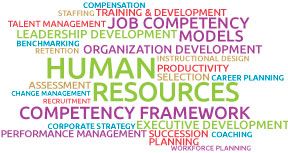 “Sometimes, the only thing worse than having an HR department is not having one.”
“Sometimes, the only thing worse than having an HR department is not having one.”
So begins a recent article published in the Careers section of the Wall Street Journal.
“Companies Say No to Having an HR Department”
“Employers Come Up With New Ways to Manage Hiring, Firing and Benefits”
There have been many articles written about the effectiveness of HR departments across the nation, the main criticism being that they have become inefficient in nature.
Yet, if HR has lost some of its appeal in eyes of line managers, the answer shouldn’t be to rid companies of its intrinsic value, but rather to identify the causes of this downfall. After all, when sales are down quarter over quarter, does a board choose to eliminate the sales department?
Why HR’s success is everyone’s business
One of the biggest challenges with some organizations is that HR is seen as a freestanding entity, controlling every facet of workforce management almost in an outsourced manner. Typically, when a manager obtains a green light to hire a new employee, he/she turns to HR with the expectation that it’ll know what to do to find that ideal candidate to fulfill the newly opened position.
But HR is no crystal ball. To do its job as intended, it requires input from those who know the company’s reality most: managers and executives. How can one reasonably expect anyone, regardless of their expertise in their given field, to have the ability to fill a position with no concrete knowledge of what success entails in this role?
The truth is, painting Human Resources as a silo at the service of the entire corporation is bound to lead to inefficiencies and excessive wastes of money… and talent. It is common knowledge that silos, in any part of the organization, should be eliminated, and HR should be invited to sit at the table regularly, if only to get a better pulse of where the company is heading and what it is lacking to get there.
If a company’s success depends on the quality and motivation of its employees, HR’s participation in your everyday processes means it can provide much needed expertise in terms of workforce planning, performance incentives and talent management to help ensure that every one of your projects accomplishes their intended objectives.
Without a HR Department….
To do without a Human Resources department, companies would need to first make sure they can accurately evaluate the cost of managers and other employees taking control of HR-related functions.
Granted, such a structure may promote accountability amongst your staff in charge and should, in theory, help optimize some of your talent management processes, but there is more to eliminating HR than what meets the eye.
Just think about potential liabilities and legalities, financial and managerial risks, missed opportunities with strategic deployments, conflict resolutions, etc. These are issues that no company can afford to neglect. If your organization has determined that it would best be served by cutting out ‘the middle man’ and attributing HR functions, such as recruiting, outsourcing, and succession planning, to its executives, there’s an important opportunity cost that must also be taken into consideration.
It may seem more efficient to let your existing managers handle the basic tasks that are often relayed to HR, but there’s a much bigger reason for the existence of a department dedicated to the expert management of your workforce.
A neglected source of profitability
Because it rarely deals directly with business development, HR is often perceived as an administrative cost center. Yet, when we consider that the cost of recruiting for a new position in this day and age has been reported to be approximately $3,500, wouldn’t it be important for your business’ profitability to ensure that you have the right experts working to minimize these costs?
And this is only one aspect of HR’s functions within an organization.
The HR Difference website describes HR’s true purpose as helping “make effective continues: “HR’s orientation is one of responsiveness to both immediate and long-term business needs, providing both operational excellence and strategic insight.”
In more specific terms, Human Resources deals with:
- Recruiting and employment
- Training and professional development
- Remuneration and benefits
- Internal policies and legalities
- Culture and philosophy
- Equality and diversity
- Disciplinary and rewards programs
- Corporate alignment and vision
This list is not exhaustive, but taking a good look at it may help you understand why relying on your managers to handle these tasks can be of great cost to your productivity. Do you really want your best executives to allocate so much of their time to these duties, for which they may not possess the right expertise and training?
In an upcoming article, we will discuss how you can streamline these processes to ensure profitability and value in your HR department.
In the meantime, we invite you to sign up to our newsletter to receive other materials designed to help you better understand, analyze and optimize your talent management processes.
 To learn more about our products and services, and how competencies and competency models can help your organization, call 800-870-9490, email edward.cripe@workitect.com
To learn more about our products and services, and how competencies and competency models can help your organization, call 800-870-9490, email edward.cripe@workitect.com
or use the contact form at Workitect.
©️2019, Workitect, Inc.

Leave A Comment